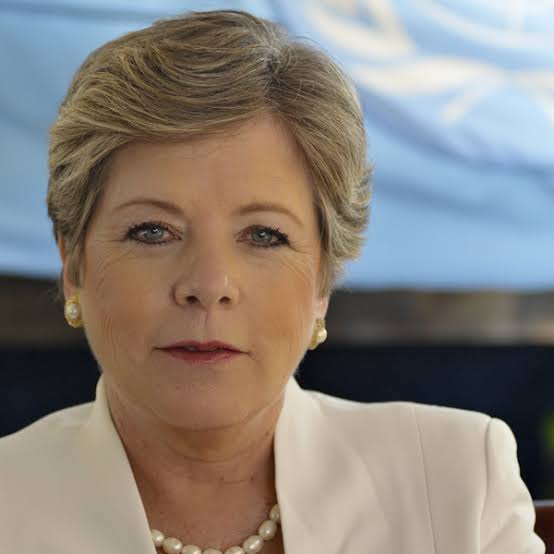
Climate Justice, Democracy, and the Future of Multilateralism with Alicia Bárcena
Select Season
Listen to this episode: Duration: 43 min.
Quick Overview
In this episode, we talked with Secretary Barcena about the United Nations, its role as it marks its 80th anniversary, and the growing questions surrounding multilateralism. Dr. Bárcena shared that “the erosion of confidence in multilateralism is rooted in unmet expectations, rising inequalities, and the powerlessness of global institutions,” and emphasized that while “we need the UN,” there is also a need to restructure key areas and improve how it operates to make it more effective. She also shared her views on the Escazú Agreement and the connections between the erosion of democracy, social inequality, and environmental breakdown.
On the topic of climate change, Dr. Bárcena stated that we need to take stock of what has been done so far to implement the Paris Agreement and highlighted the importance of not only complying with existing agreements but also setting more ambitious goals. She mentioned that Mexico is working on its NDC (Nationally Determined Contribution), which will include a more ambitious climate agenda focused on energy transition, emission reduction, biodiversity conservation, and nature-based solutions. She reflected that “sustainability is not only a technical challenge, it’s a moral imperative,” and stressed that “climate change is not just a scientific or economic problem; it’s a moral and ethical crisis.” She described the Earth Charter as not only a social compact but also a compact for sustainable development.
Questions and Topics Addressed in this Episode
- This year marks 80 years since the end of World War II and the founding of the United Nations, this is happening in the midst of a growing distrust in multilateralism and many questioning the UN and its role.
What are your thoughts on this and on the important role the UN has to play in responding to today’s interconnected global challenges? - How do you see the interconnections between democracy, social justice, and sustainability, three elements that are shaky and also under questioning, especially in Latin America?
- What should be the priorities leading up to COP30 and how do you see Mexico’s role in this?
- In the context of COP30, the Brazilian government is calling for a “Global Ethical Stocktake” (GES)—a proposal that seeks to embed ethics and broader societal voices into climate decision-making – what are your thoughts on this? And what opportunities do you see in reframing climate action through an ethical lens, and how might Mexico engage or support this initiative?
- Can you comment on the Escazú Agreement?
- What are your thoughts on the Earth Charter and the role you think it can play in this critical moment?
Alicia Bárcena

Climate Justice, Democracy, and the Future of Multilateralism
Who is Alicia Bárcena?
Secretary of Environment and Natural Resources of Mexico. She served as Secretary of Foreign Affairs of Mexico from June 2023 to September 2024. Previously, she served as Mexico’s ambassador to Chile. From 2008 to 2022, she served as Executive Secretary of the Economic Commission for Latin America and the Caribbean (ECLAC). At the UN, she was Under-Secretary-General for Administration and Management to then-Secretary-General Ban Ki-moon, and Chief of Staff and Deputy Chief of Staff to then-Secretary-General Kofi Annan. Dr. Bárcena is a Mexican diplomat, biologist, and academic who also worked at the Secretariat of the United Nations Conference on Environment and Development (UNCED), where she was responsible for the oceans chapter of Agenda 21, among others.
More than 30 years ago, Dr. Barcena was instrumental in shaping the vision Earth Charter Initiative in 1994 – as a follow-up to the Earth Summit—bringing together voices from the field of law, science, theology, governments, youth, and Indigenous communities to shape a global ethical framework for sustainability.
This podcast is developed by Earth Charter International as part of our work as UNESCO Chair on Education for Sustainable Development with the Earth Charter.




